Episodes
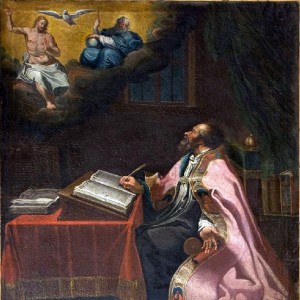
Tuesday Nov 05, 2019
Mysticism in Our Cultural Wasteland with Dr. Jason Baxter
Tuesday Nov 05, 2019
Tuesday Nov 05, 2019
In his newest book, The Irony of Modern Catholic History, George Weigel argues that in our secular and increasingly non-rational culture, the Catholic intellectual tradition could save the mind of the West. Similarly in a new book-in-progress, Wyoming Catholic College’s Dr. Jason Baxter argues that in our disenchanted and materialistic culture, Catholic mysticism could save the spirit of the West.
Dr. Baxter’s new book is about mysticism and about what we can learn about prayer from the Church Fathers. A few weeks ago, he shared his initial chapter with our faculty.
In that chapter, Dr. Baxter starts by noting that beginning in the early twentieth century, “for the first time in human history, it was possible to spend your whole life not just without encountering God, but without knowing you were supposed to.”
The question is: Where do we go from there?
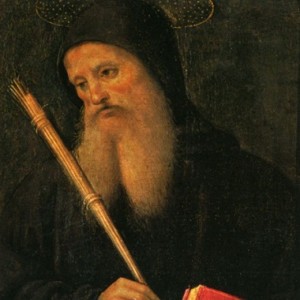
Tuesday Oct 29, 2019
Benedict's Rule at College and at Home with Prof. Kyle Washut
Tuesday Oct 29, 2019
Tuesday Oct 29, 2019
“Listen, my son, to your master's precepts, and incline the ear of your heart. Receive willingly and carry out effectively your loving father's advice, that by the labor of obedience you may return to Him from Whom you had departed by the sloth of disobedience.”
Those words are from the beginning of St. Benedict's Rule for Monasteries, the topic of this fall's all-school seminar here at Wyoming Catholic College. On October 24, the entire school community gathered for Mass followed by a Benedictine-style lunch--eating in silence as we listened to a reading about the Benedictines from St. John Henry Newman. After lunch we chanted the office and listened to some introductory remarks about the Rule before breaking up into seminar groups led by our seniors. A festive dinner followed.
Prof. Kyle Washut, our Academic Dean, was the creative force behind the day and is our guest this week on The After Dinner Scholar.
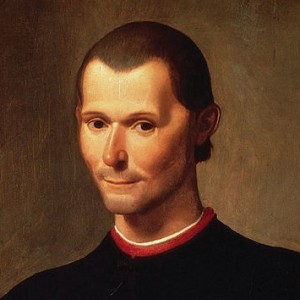
Tuesday Oct 22, 2019
On Getting Whatever You Desire: La Mandragola with Dr. Kent Lasnoski
Tuesday Oct 22, 2019
Tuesday Oct 22, 2019
“Because life is brief…let us follow our desires” has a rather contemporary ring to it. Yet those words were penned in 1512 by the playwright, philosopher, and politico Niccolò Machiavelli in his play La Mandragola, The Mandrake.
Machiavelli is, of course, best known for his book The Prince that gives advice on how to rule. That book contains observations such as, “All ethical and moral values are arbitrary artifacts from the cultures that set them forth. All political and military greatness is derived from ignoring them.”
La Mandragola is, in a sense that kind of thinking turned into a play and Dr. Kent Lasnoski, our guest this week, has been teaching that play to our students with amazing results.
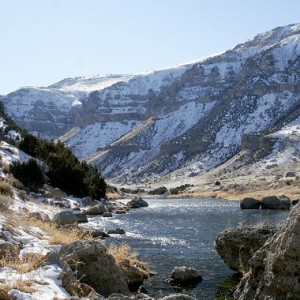
Tuesday Oct 15, 2019
Field Science in the Wide Wyoming Wilderness with Dr. Sam Shepherd
Tuesday Oct 15, 2019
Tuesday Oct 15, 2019
While walking our dog, Maggie, near the Popo Agie River on a frigid day last winter, I noticed a tiny, slate-grey bird standing on the ice next to open water. As I watched, the bird, an American dipper, dove into the water and disappeared. A little while later, it popped out of the river and back to its spot on the ice. I was transfixed with wonder.
Maggie and I have also seen kingfishers, American kestrels, lots of mule deer, various kinds of snakes, ruffed grouse, and, to my shock, a badger in our backyard. Add to the animals, all the plants and flowers, the geology, the weather, the night sky and we can’t help say with Psalm 104, “O Lord, how manifold are your works! In wisdom you have made them all; the earth is full of your creatures.”
Wyoming Catholic College students study God’s Creation as part of our math and science curriculum under the watchful eye of Dr. Sam Shepherd. Dr. Shepherd and his family moved from Ireland this summer to join our faculty. He is our guest this week on The After Dinner Scholar.
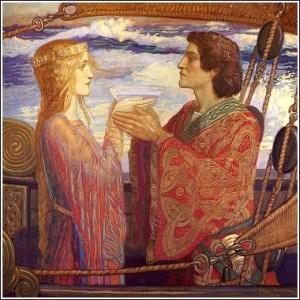
Tuesday Oct 08, 2019
Brave Knights, Lovely Ladies, and Medieval Romances with Dr. Tiffany Schubert
Tuesday Oct 08, 2019
Tuesday Oct 08, 2019
The prioress in Geoffrey Chaucer’s Canterbury Tales is something less than a humble holy woman. She lives a comfortable even luxurious lifestyle. She values her lap dogs above most people. The rosary she carries is made with precious stones and she wears a golden brooch on which is engraved “Amor Vincit Omnia,” “Love conquers all.”
The romantic notion the “Love conquers all” is hardly a relic of the past. To judge by many modern movies,TV shows, popular songs, and books, we still dream of being overcome by the power of love and swept into a happily-ever-after.
And that idea has been around for at least 1,000 years beginning with the medieval romances.
Dr. Tiffany Schubert recently led a faculty symposium about Medieval romances here at Wyoming Catholic College. Dr. Schubert is our guest this week on The After Dinner Scholar.
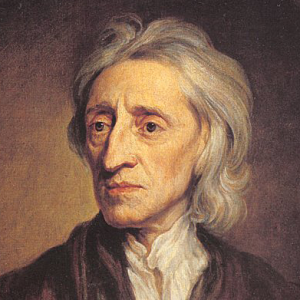
Tuesday Oct 01, 2019
Tuesday Oct 01, 2019
“Ready, fire, aim,” we tell our children,” is no way to live.” Careful thought comes first whether you’re hunting, choosing a college, building a birdhouse, or writing a constitution for a new republic.
What kind of government will allow human beings the greatest freedom to flourish? To answer that question, we first need to ask about the nature of human beings and second we need to ask about the nature of freedom.
And while the answers to those questions may seem obvious, they are far from it. They require careful questioning and reasoning.
The American founders lived in an age where questions about what it means to be human and about the definition of freedom were hotly debated and nowhere more so than by Thomas Hobbes and John Locke.
At Wyoming Catholic Colleges’ Constitution Day assembly, political philosopher Dr. Pavlos Papadopoulos discussed Hobbes and Locke, their similarities, differences, and the way each influenced the American founding.
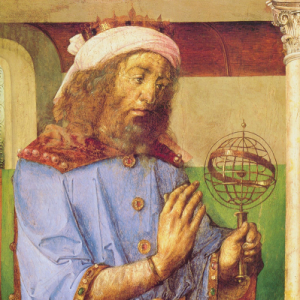
Tuesday Sep 24, 2019
Medieval Manuscripts and the Movement of the Heavens with Dr. Henry Zapeda
Tuesday Sep 24, 2019
Tuesday Sep 24, 2019
“Everybody knows,” said the US senator at a Senate hearing I attended, “that before Columbus everybody was sure that the world was flat.”
Regardless of what the senator believes, you’d have to go back a long, long, long time before Columbus to find people who believed the world was flat. In fact, back in about 240 BC not only was it well known that the earth was a ball, but they had managed to calculate its circumference.
And by AD 150, Claudius Ptolemy created his geocentric model of the universe, a model that held sway for 1,500 years until Nicolaus Copernicus and others placed the sun rather than the earth at the center of things.
In that 1,200 years Ptolemy’s treatise, Almagest, was copied over and over. In addition, scholars wrote numerous commentaries on the work.
All of which fascinates Wyoming Catholic College’s Dr. Henry Zepeda who has a particular interested in the way medieval scholars understood the mathematical sciences that they inherited from the Greeks and Arabs. He has spent much of his adult life reading medieval manuscripts in libraries across the United States and Europe and spent this past summer in Kansas City immersed in medieval manuscripts.
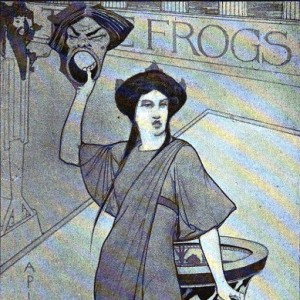
Tuesday Sep 17, 2019
Tuesday Sep 17, 2019
Athens had been at war more or less continually since 431 BC and the people on all sides were sick of it. So it may be of no surprise that in 405 BC at the Lenaia, Athens’ annual theater festival, first prize went to a comedy: Aristophanes’ “The Frogs.”
“The Frogs” comes to the modern reader as something as a surprise. The ancient play seems to have strong notes of the Shakespearean comedies, of Oscar Wilde, and of Monty Python’s Flying Circus. Which is to say, it has the feel of something that could have been written today in spite of being more than 2,400 years old.
Dr. Tiffany Schubert and Dr. Kent Lasnoski are team teaching our junior humanities course and joined me to talk about “The Frogs,” comedy, and satire beginning with the historical context in which Aristophanes wrote.
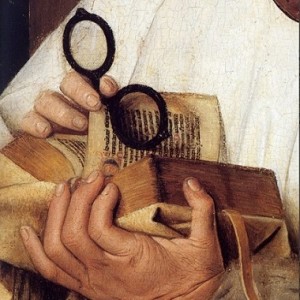
Tuesday Sep 10, 2019
Christ, the Incarnation, and the Scriptures with Prof. Travis Dziad
Tuesday Sep 10, 2019
Tuesday Sep 10, 2019
After graduating from Wyoming Catholic College in 2013, Travis Dziad completed his Masters in Theology in Austria at the International Theological Institute. Then he went into the Ph.D. in Theology at Ave Maria University.
This summer in addition to returning to Wyoming Catholic College as Teaching Fellow for Theology, Leadership, and Outdoor Education, soon-to-be-Dr. Dziad successfully defended his dissertation which was on the timely topic of the inspiration of Scripture. Prof. Dziad is our guest this week on The After Dinner Scholar.
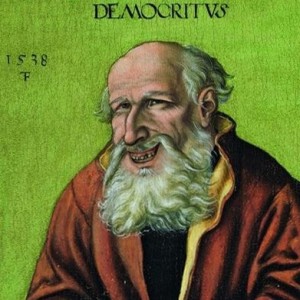
Tuesday Sep 03, 2019
Reading Democritus Today with Dr. Michael Bolin
Tuesday Sep 03, 2019
Tuesday Sep 03, 2019
While there were too many copies of his works to make the plan practical, it is said that the great philosopher Plato wanted to gather every one of Democritus’ manuscripts into a great bonfire and thus to be rid of them forever.
While Plato did not get his wish, history has not been kind to the works of Democritus. Born in Trace around 458 BC, Democritus traveled widely in the ancient world and produced some sixty works of philosophy and science. But all we have left is fragments.
Yet to a modern reader, those fragments are intriguing in large measure because they sound so modern beginning with his view of the physical world: “Nothing exists except atoms and empty space; everything else is optional.”
Wyoming Catholic College philosopher, Dr. Michael Bolin recently taught Democritus and is our guest on this edition of The After Dinner Scholar.

